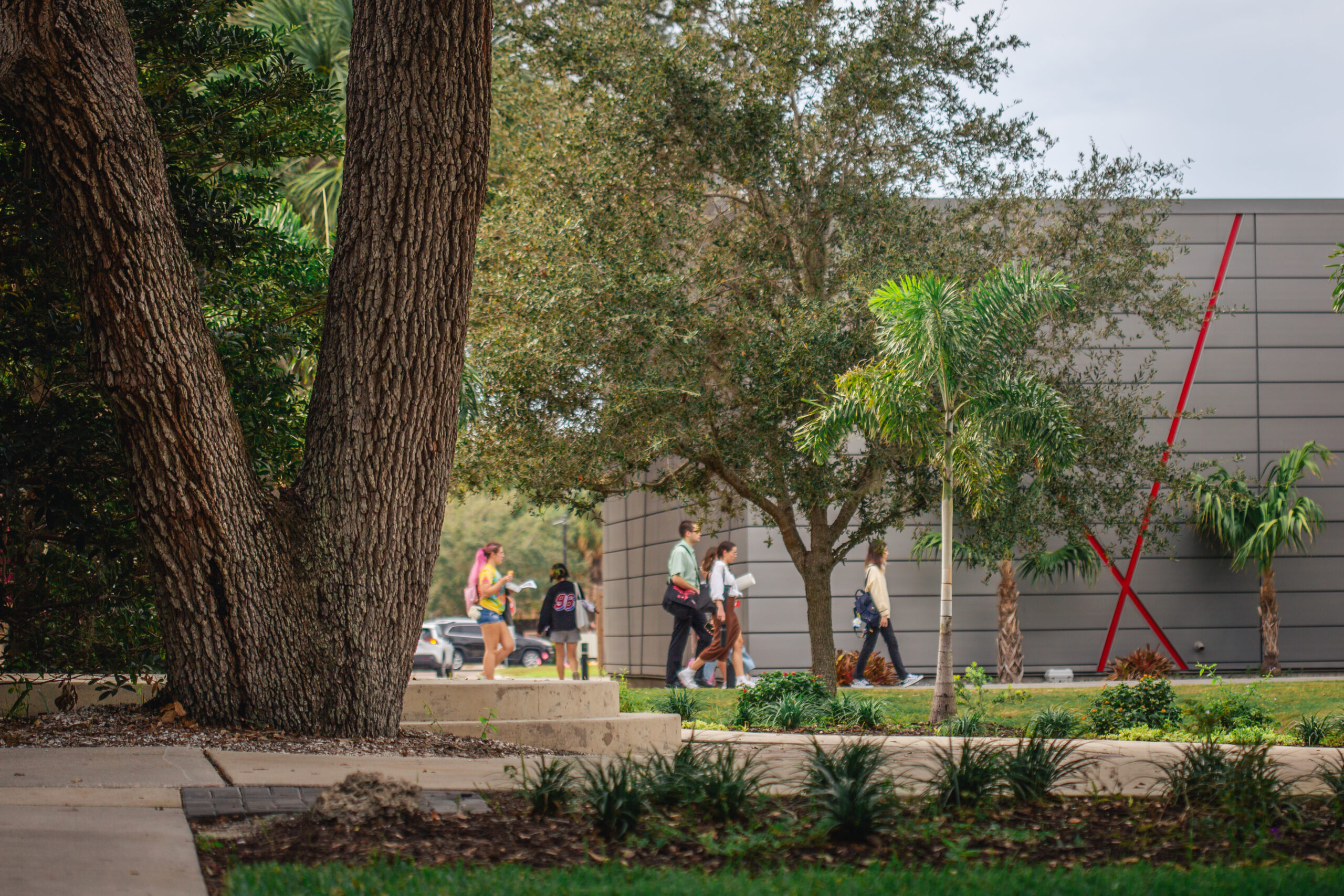Ringling College of Art and Design was selected for the Princeton Review’s 2024 list of Green Colleges. The College is one of only two art schools and AICAD institutions to make the national list of environmentally responsible colleges.
Ringling College is dedicated to working towards sustainability and having a green campus. Every new building has the goal of becoming LEED Certified, growing the list of buildings that can already claim the certification: the Larry R. Thompson Academic Center, Alfred R. Goldstein Library, the Richard and Barbara Basch Visual Arts Center, Bridge Apartments and Greensboro Hall, and our new dining facility Cunniffe Commons. The dining hall houses 150 solar panels on its roof and in-house coolers for chilled water. It also employs state-of-the-art waste technology that breaks down food waste using a bacteria that mirrors a whale’s stomach—inspiring its name, the Orca.
The College’s Facilities department is currently overhauling our network of collection bins around campus and adding several locations to increase the ease of contributing to the Ringling recycling program.
In addition to the recycling program, they have several other projects in the works, led by Energy and Sustainability Manager Ian Shannon, including expanding the number of electric vehicle (EV) charging stations around campus, expanding ice storage at our chilled water plant, LED light replacement, and converting buildings to smart air conditioning and energy recovery ventilation (ERV), which uses less energy and is designed to address the sick building syndrome when buildings are sealed too well.
At the end of last year, the College submitted information to the Sustainability Tracking, Assessment, and Rating System (STARS) for rating, which should be announced in March 2024.
Since his arrival as Grounds Maintenance Supervisor, Devin Riles, who heads all of the landscape initiatives, has primarily been concentrating on cleaning up an overgrowth of trees, shrubs, and debris after two hurricanes and COVID-19 closures. Almost 120 trees were lost between the College’s Main Campus, Sarasota Art Museum and the Museum Campus, and the Englewood Art Center. As the team addresses the tree loss, they are integrating a new tree software system from PlanIT Geo to help track what is left and any new additions that they plant. Arborists from the Arbor Day Foundation’s Tree Campus Higher Education have been invited to review and rate the campus trees for health, size, and quantity, and to be included on their map of U.S. colleges recognized as tree campuses.
Facilities and Ground Maintenance have also been working with Phillip J. Smith of David W. Johnston Associates, Inc. Architects on plant selections that are low maintenance and follow the University of Florida’s Florida-Friendly Landscaping program for the landscape of new buildings and parking lots. The nine principles of the program are to find the right plant for the right place, water efficiently, fertilize appropriately, mulch, attract wildlife, manage yard pests responsibly, recycle yard waste, reduce stormwater runoff, and protect the waterfront.
One of Rile’s main goals has been to develop an irrigation master plan to efficiently water plants across the campus. They have hired a team of aqua engineers to assess the grounds and put together a proposal. Riles is currently setting up 22 individual irrigation controllers with web-based service that allows users to control irrigation via any internet-connected smartphone or tablet.



